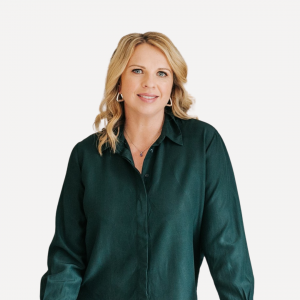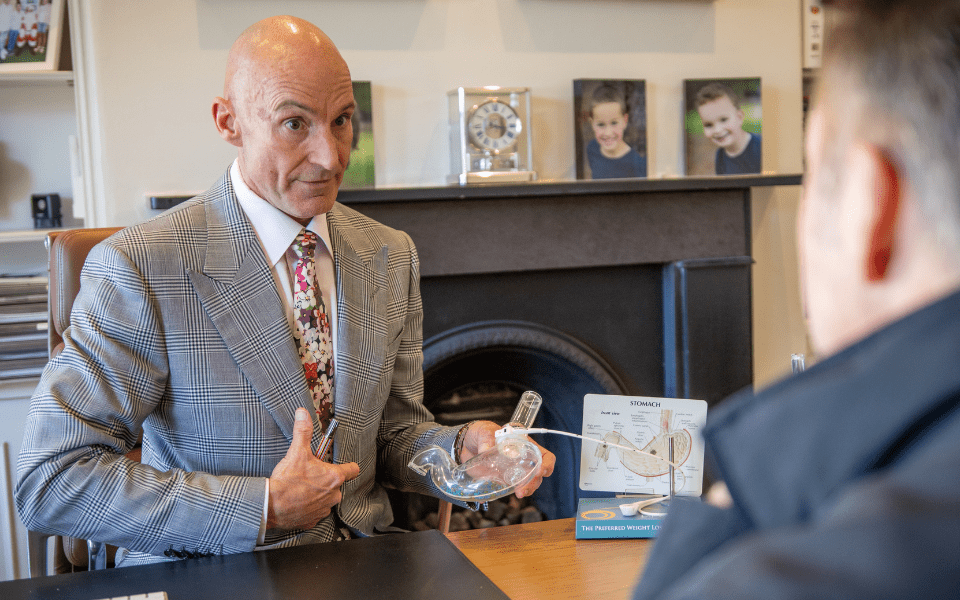
Eyeing the last snag on the barbie? Can’t get your eyes off the pudding? Here are 5 Christmas healthy eating hacks to help pre and post bariatric patients over the holiday period, courtesy of the Winnett Specialist team.
1. Don’t give yourself permission to eat from December to mid-January.
“The “holiday” season isn’t just Christmas to New Year week, it’s endless work parties, school end-or-year events, family lunches and a literal smorgasbord of eating opportunities almost everywhere we go from the beginning of December,” says Georgie Beames, Psychologist with the Winnett Specialist Group.
“But because there is constantly food in front of us, and because there’s social pressure to join the party so to speak, this creates a perfect storm for consuming unwanted kJs in the form of both food and drink”.
“That’s why it’s so important not to give yourself a blanket excuse to eat because it’s the holidays, with the intention of starting over again come January 1st. This is an all-or-nothing pre surgery mindset that we want to address”.
She says maintaining a healthy eating structure and routine at this time is critical.
“Consciously diary one or two days a week you can have a little indulgence and enjoy yourself, but otherwise try to maintain your regular goals for the rest of the period.”
2. Navigate Xmas “dumping syndrome”.
“For those patients who have already undergone surgery recently, dumping syndrome is a common side effect of surgery that can easily be avoided by making prudent food choices, especially in high-risk periods such as holidays,” says Mr Jason Winnett, bariatric and laparoscopic Surgeon.
“Dumping Syndrome occurs when high sugar and high energy foods such as soft drinks, fruit juices, white bread, pasta and rice move too quickly from the stomach into the large bowel,” he says.
“Early dumping occurs straight after eating, and typically symptoms include nausea, diarrhoea, fatigue and sweating. Later dumping occurs about 1 to 3 hours after a meal and can lead to hypoglycaemia, sweating, anxiety, confusion, hunger, tremor, diarrhoea and rapid heart rate.
“The best way to avoid Dumping Syndrome is simply to restrict alcohol, sugar and junk food.”
“Also avoid large meals regardless of the food type and do not consume any liquid within 30 minutes of a solid food meal. Drink BETWEEN meals, rather than during meals.”
3. Think high protein.
One to two weeks post-surgery, most patients will move to a blended puree diet, says Winnett Specialist Services Dietitian Ashleigh Gale.
“This is a blended puree diet where we aim for 3 to 4 meals such as high protein yoghurt, cottage cheese, soft scrambled eggs, thickened soups or mashed up tuna/salmon with avocado. Patients will also have to think about adding some additional tasteless protein into their fluids or food in order to hit their protein goals.”
“Between 4-6 weeks, most patients can return to normal textures – about ¼ cup per meal in the first few months post op, increasing to around 1 cup per meal for those that are 9-12 months into their journey.”
“We want to still focus on higher protein, lower carbohydrate options. Think foods such as eggs, lean meats, chicken and fish, tofu, high protein dairy such as yoghurt, and with lower starch vegetables or salad. When it comes to carbohydrates, aim for high fibre options; lower carb bread, beans/lentils or legumes, and smaller amounts of pumpkin or potato.”
Whether you are pre- or post-surgery or just looking to maintain your weight, if you need a sweet festive treat, check out this recipe for a higher protein sweet option. See recipe here.
4. Think small, regular meals and avoid grazing.
“Think of a smaller portion size when eating and move away from the buffet table to avoid grazing,” says Ashleigh.
“Also use a dessert plate instead of a dinner plate and opt to fill it with protein first as well as bulking out your portion and leafy salads or veggies, rather than white bread or pasta or potato salads.”
Other healthy eating tips include:
- Choosing lemon vinaigrette with small amounts of extra virgin olive oil rather than any creamy dressings.
- Eating low GI fruits such as apples, oranges, strawberries, blueberries and plums as opposed to sweets or high GI fruits such as ripe bananas, rockmelon, pineapple and watermelon.
- If you need a salty kick, good options are unsalted nuts, turkey breast instead of salami and fresh peeled prawns and grilled seafood instead of sausages and cured meats.
- Make a point of downsizing glasses at home. Opt for a small (125 ml) wine glass rather than a large (250 ml) glass. Alcohol should be largely avoided, especially early in your weight loss journey.
5. Be accountable.
“This means only weighing yourself once a week, thinking high protein always, and aiming for at least 10,000 steps a day,” says Mr Winnett.
“What you shouldn’t do over the holiday period is eat while watching TV; drink alcohol more than one or two glasses a week; or skimp on sleep.”
“And if you’re planning on joining the celebrations without feeling left out, bring your own alcohol free beer, wine or mocktails, now available in many supermarkets.”
Santa’s Little helper: Bariatric Mocktail

Serves: 2
Ingredients:
- 1 whole Lime
- 1 whole lemon
- Handful fresh mint
- 2 cups water
- 3 tsp honey or agave nectar (1 1/2 tsp per cup)
Method:
- Fill 2 glasses with crushed ice and add 1 1/2 tsp of honey or agave nectar to the ice.
- Cut your lemon and limes in half. Use the juice of half the lemon and half the lime in each glass. (If you would prefer a little less citrus, cut the lemon and limes in half again)
- Once you have added your lemon and lime juice, add in your fresh mint and a couple of lemon and lime slices.
- Once you have your lemon and lime juices, add in fresh or sparkling water to fill the rest of the glass.
- Use a spoon and stir the mocktail until the honey or nectar is combined.
We’re here to support you
Navigating the holiday season on a weight loss journey can be challenging, but at Winnett Specialist Group, we want to assure our patients that celebrating with joy and staying committed to healthy eating are not mutually exclusive.
As tempting as the holiday feasts may be, finding balance is key. Remember, it’s about making mindful choices rather than an all-or-nothing approach. Whether you’re pre or post-surgery, our dedicated team is here to support you every step of the way. So, enjoy the festive moments, and know that your health journey is a unique and celebrated path. Happy holidays from the Winnett Specialist Group!

Mr Jason Winnett
Laparoscopic and Bariatric Surgeon
P (03) 9417 1555 admin@winnettspecialistgroup.com.au
www.winnettspecialistgroup.com.au
Queens Terrace, 382 Victoria Parade, East Melbourne 3002

Georgie Beames
Psychologist
P (03) 9417 1555 admin@winnettspecialistgroup.com.au
www.winnettspecialistgroup.com.au
Queens Terrace, 382 Victoria Parade, East Melbourne 3002

Ashleigh Gale
Dietitian
P (03) 9417 1555 admin@winnettspecialistgroup.com.au
www.winnettspecialistgroup.com.au
Queens Terrace, 382 Victoria Parade, East Melbourne 3002
Sources:
- RACGP Clinical Resources – national guide to a preventive health assessment for Aboriginal and Torres Strait Islander people.
- Explicit and implicit bias among health care students: a cross-sectional study of 39 Australian universities, The Lancet E-clinical Medicine, 2023.
- RACGP How should doctors discuss weight with their patients – GP news.



